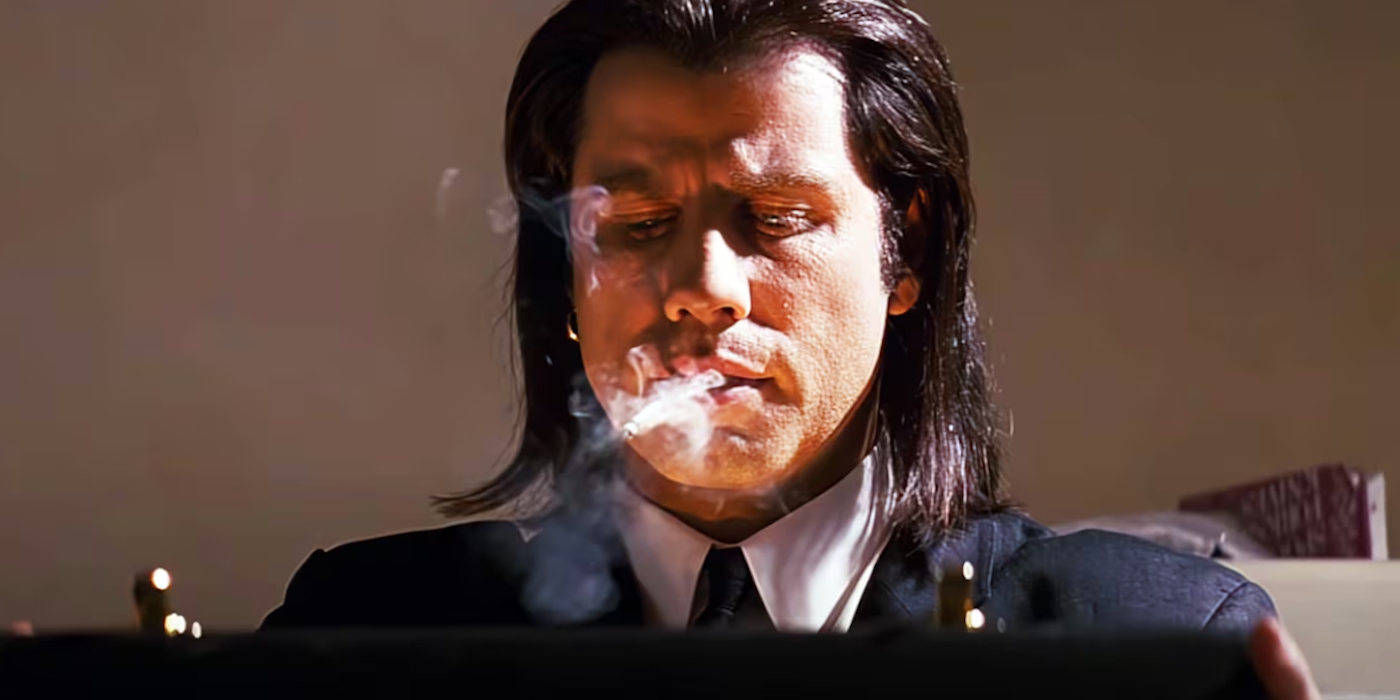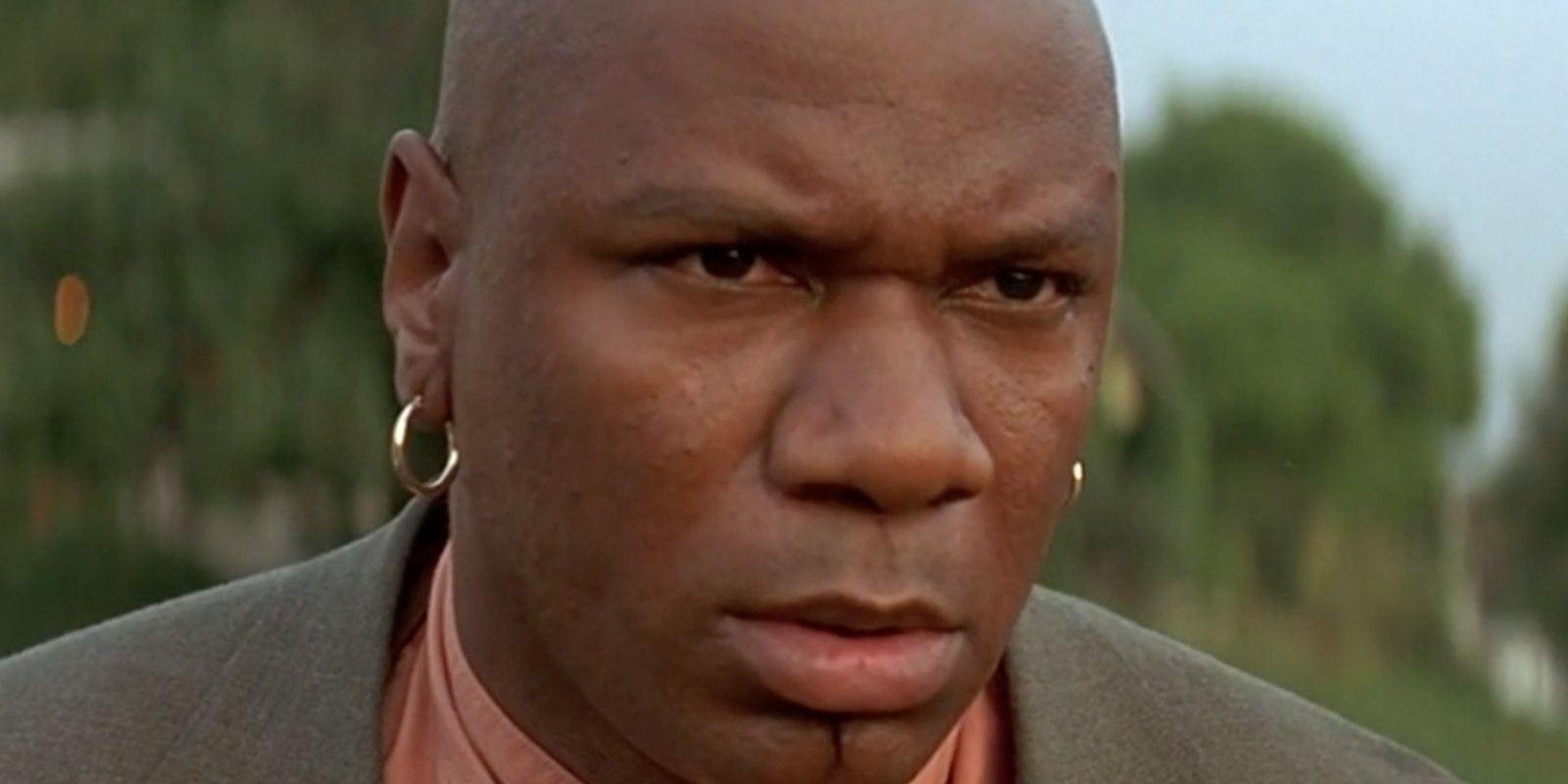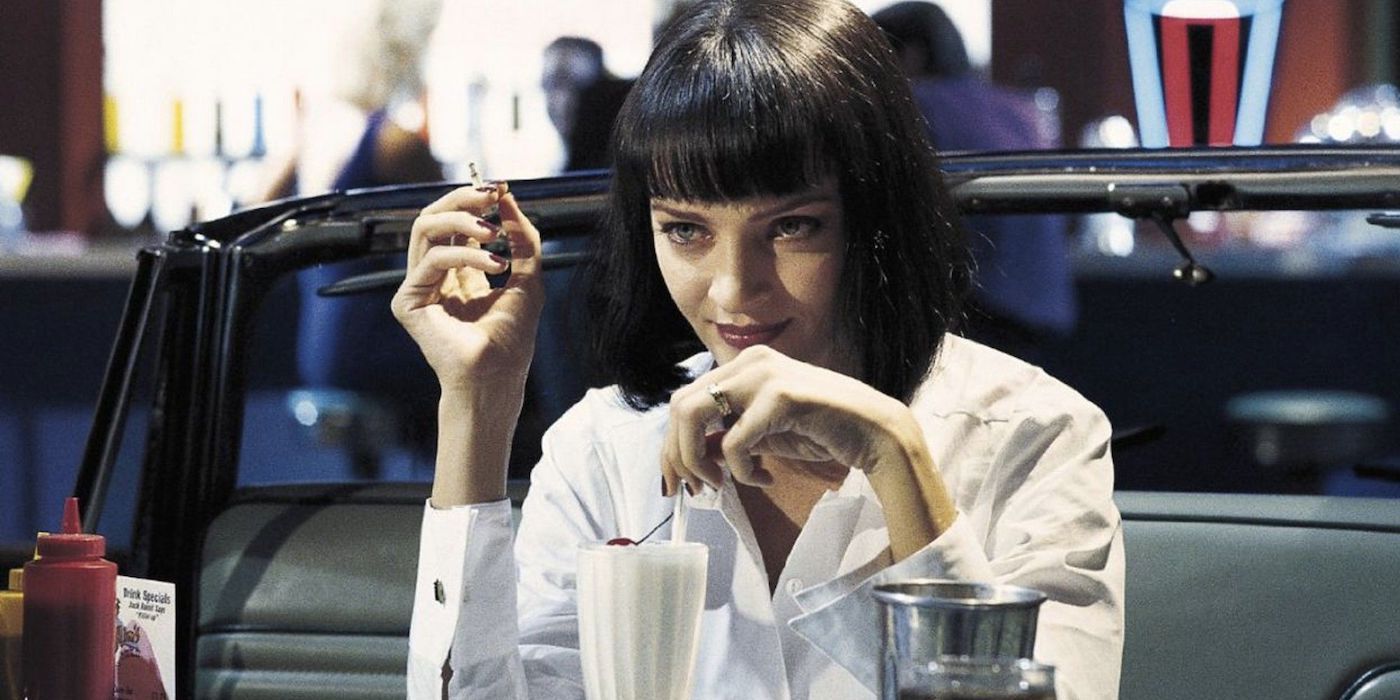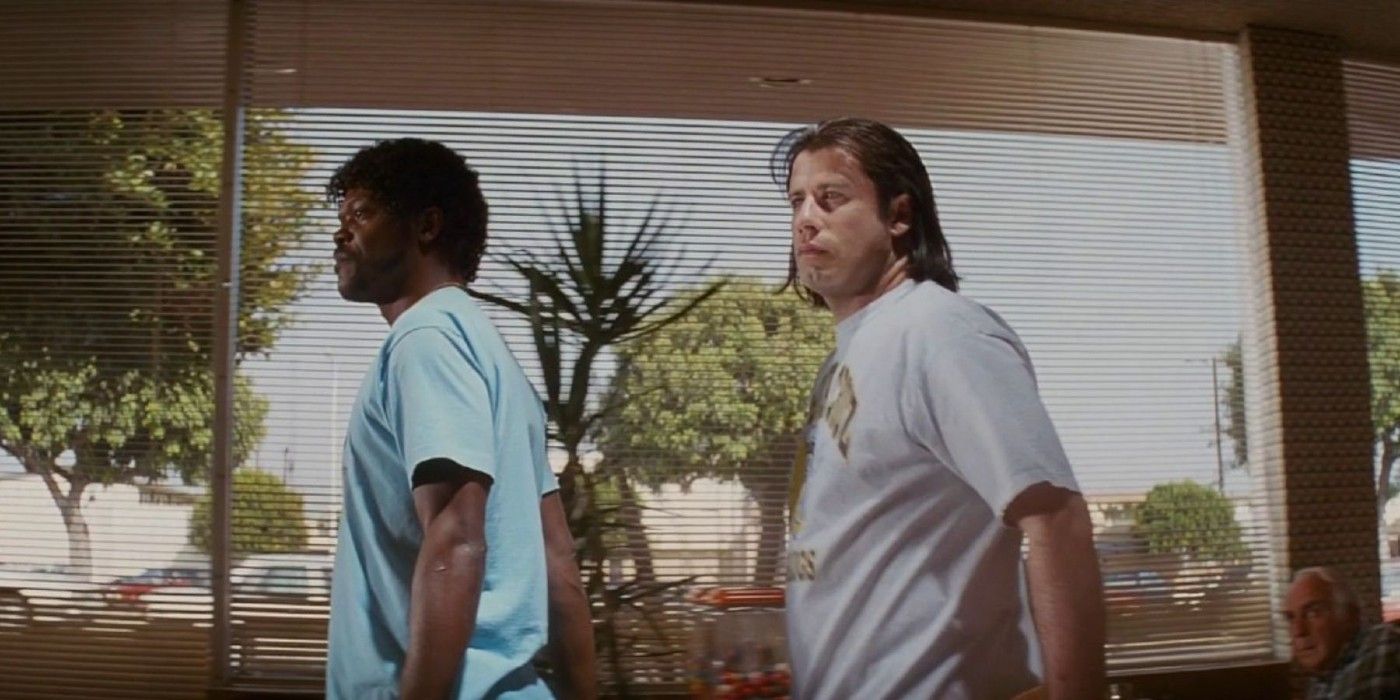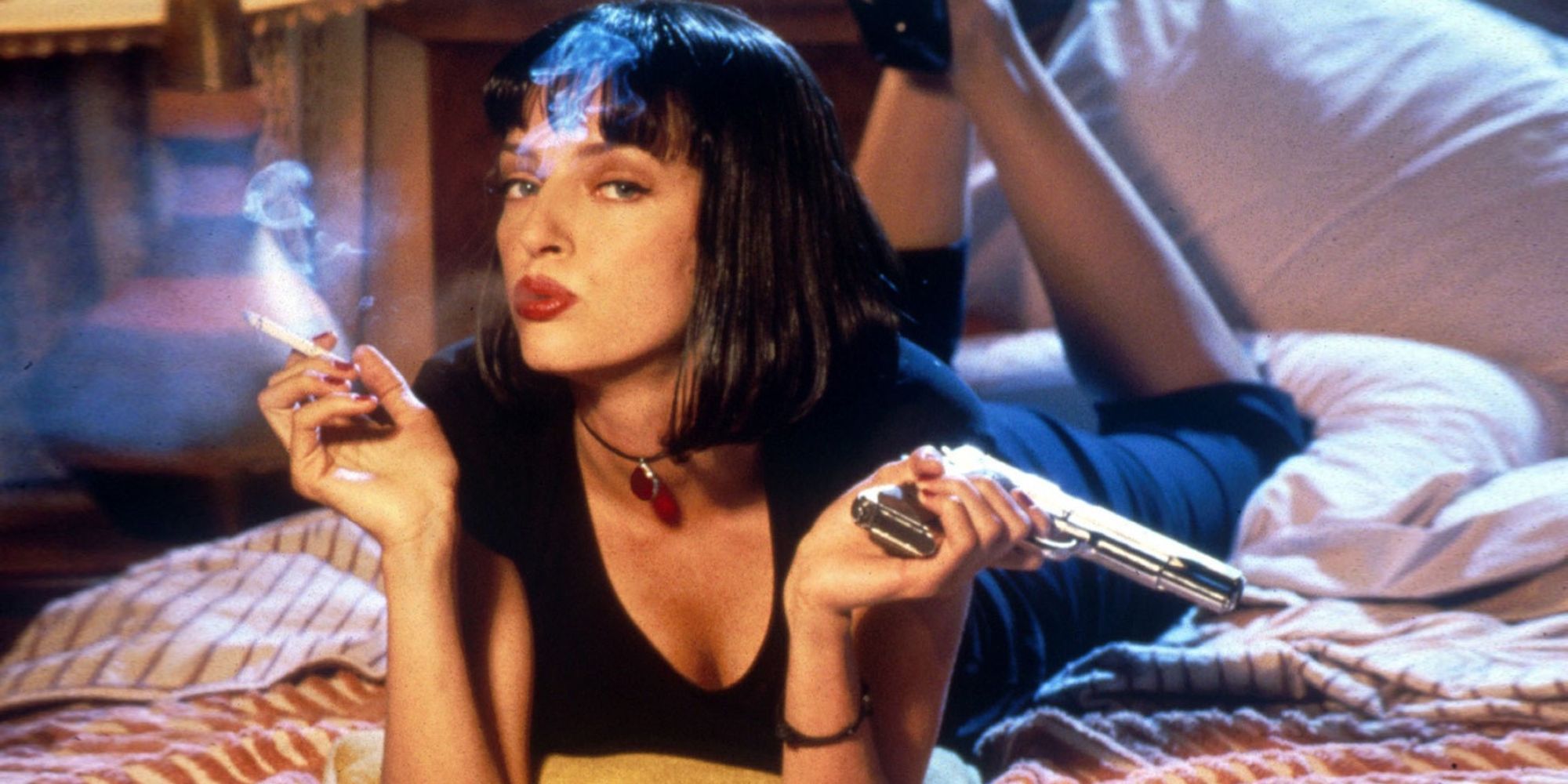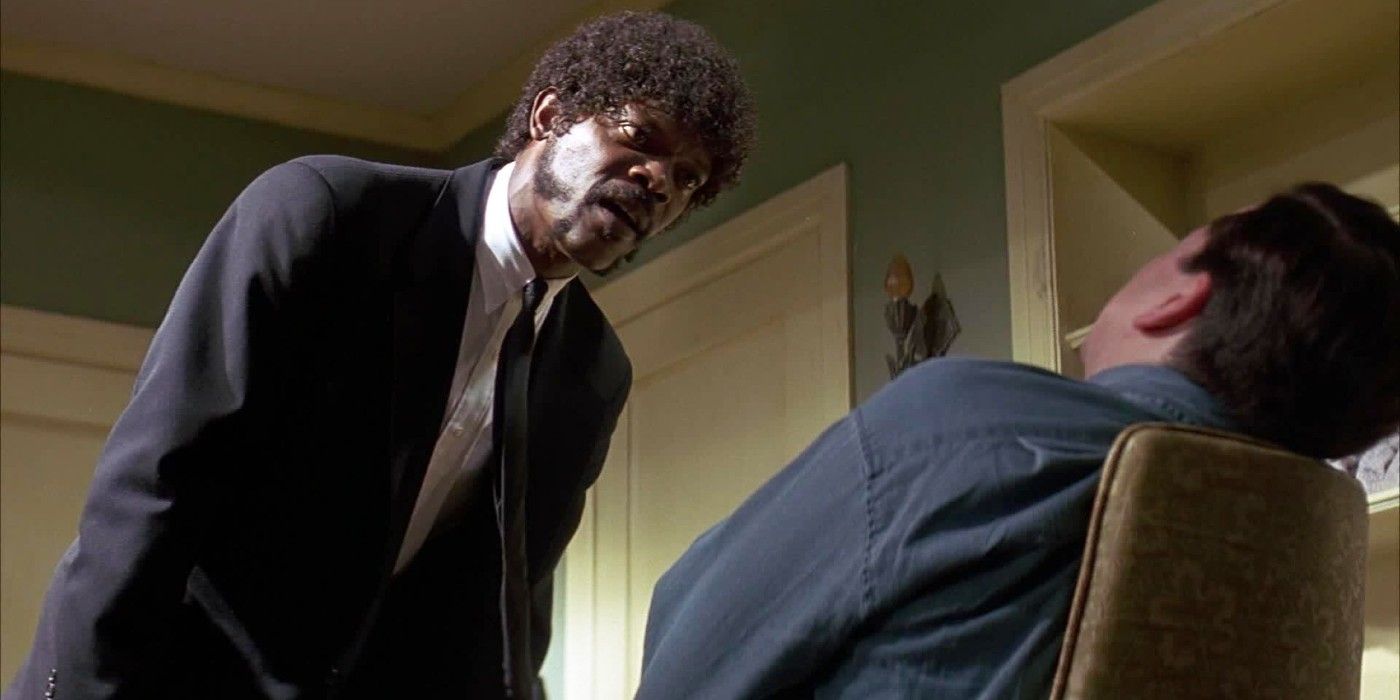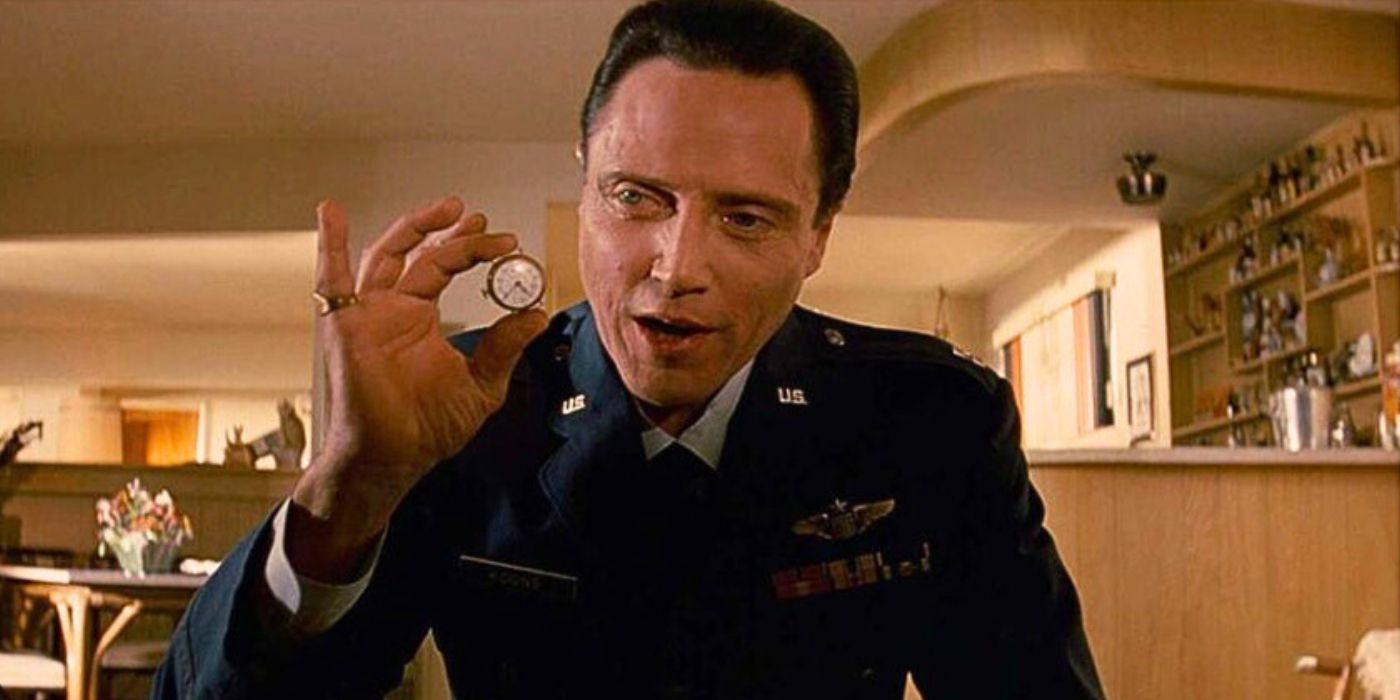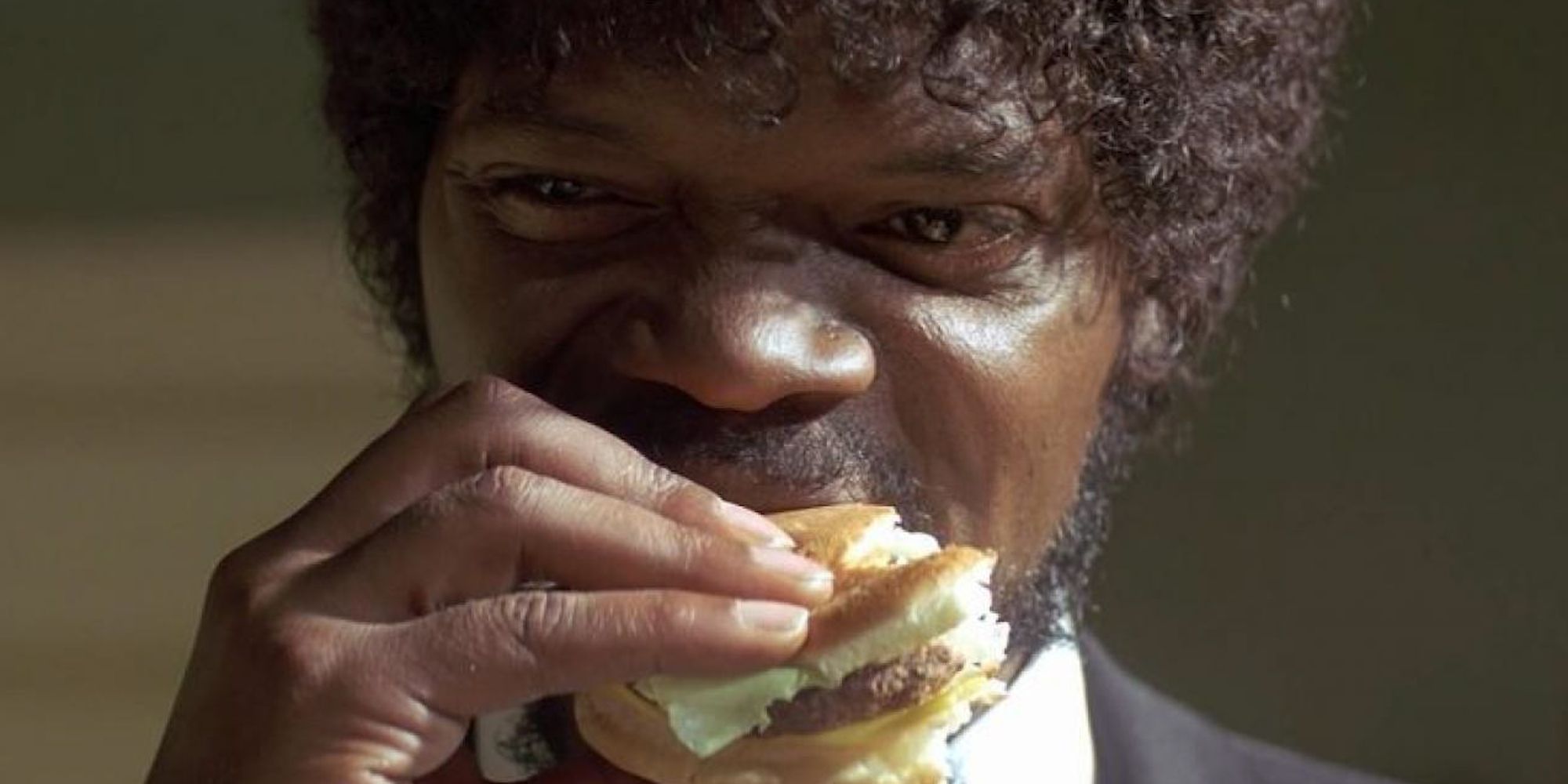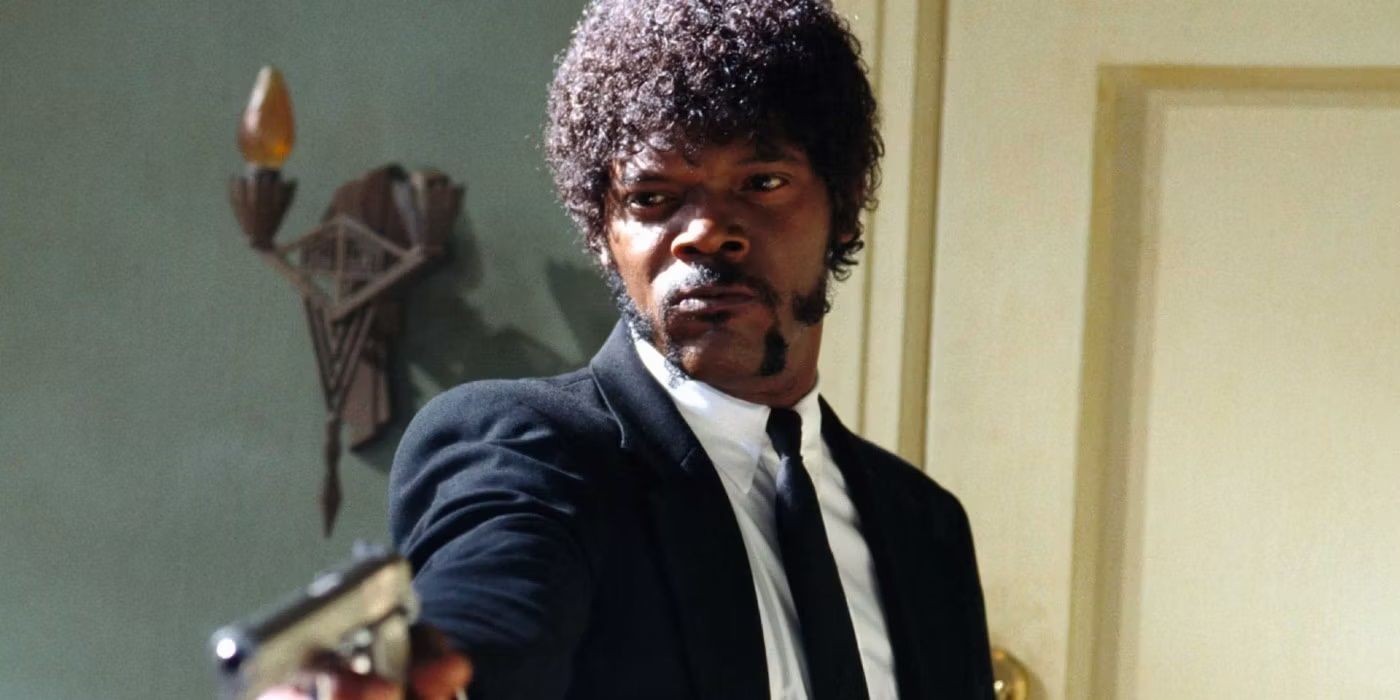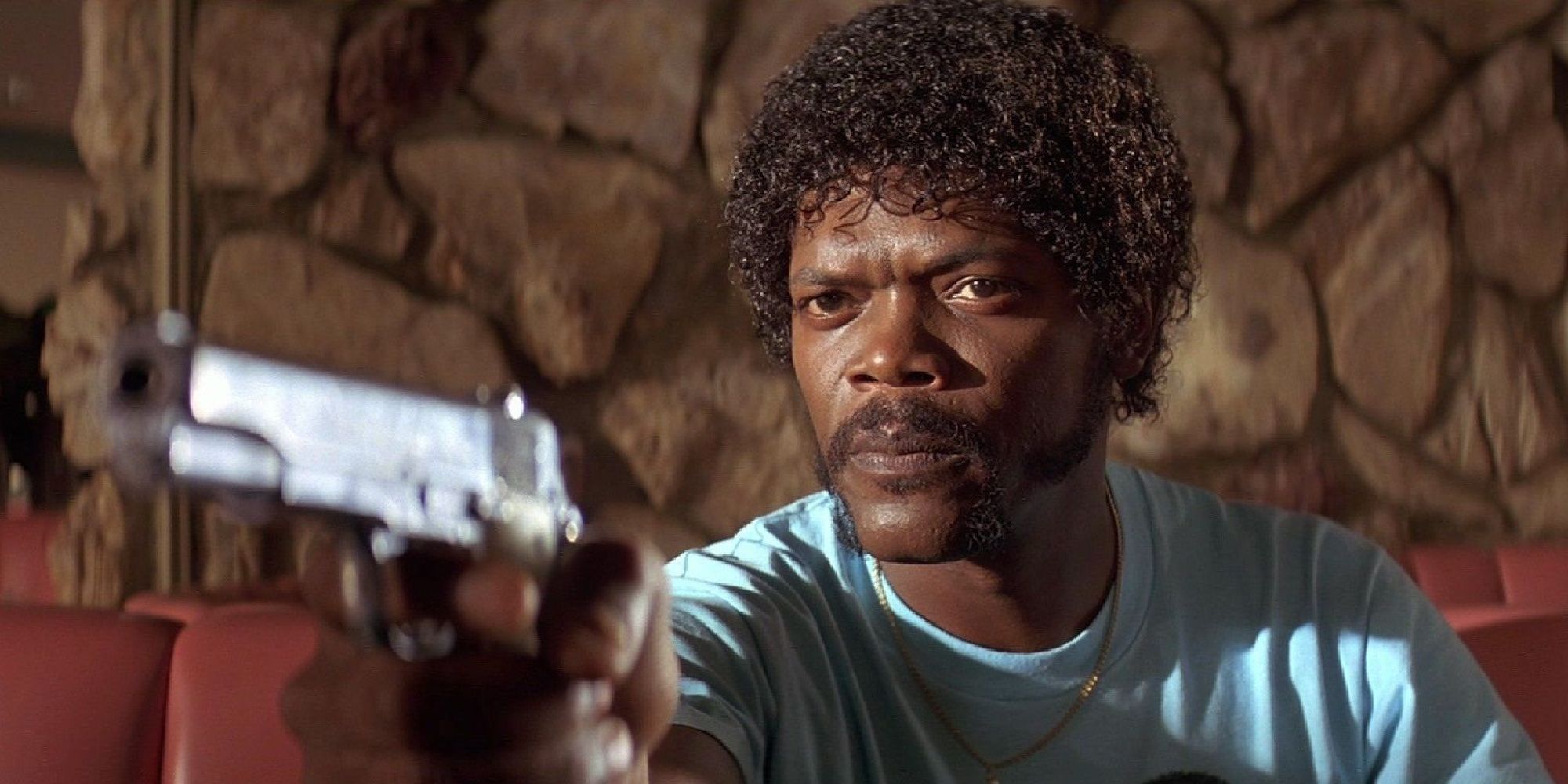[ad_1]
Pulp Fiction is one of the best movies from the ’90s, and it has been a cultural giant since its initial release in 1994. The dialogue is so memorable that the movie still ranks among the most quotable pieces of pop culture after over thirty years. This off-beat crime comedy features lines ranging from hilarious to haunting to philosophical, and viewers can have a variety of reactions to them upon each viewing.
Meanwhile, some of these quotes are deeper than one might expect from the movie with the Gimp. Wisdom lurks behind the gruesome and the bizarre. Watching the movie over again, one can view it as a gritty and violent comedy of manners. Tackling social situations ranging from giving a foot massage, taking a boss’s wife out on the town, asking a friend for an enormous favor at the risk of his marriage, and saving someone who wanted you dead, this singular film evaluates the seemingly small yet significant scenarios that make up the human condition with a mixture of mundanity and spectacle. In the end, the most profound lines in Pulp Fiction bring a little bit of meaning and thematic resonance to the madness. In short, they show that writer-director Quentin Tarantino isn’t just interested in irreverence, taboo, and violence.
10
“There’s a sensuous thing going on where you don’t talk about it, but you know it, she knows it. F—ng Marsellus knew it.”
Vincent (John Travolta)
Word on the street is that Marsellus Wallace (Ving Rhames) threw someone out of a window over giving his wife a foot massage. Jules (Samuel L. Jackson) thinks that’s a major overreaction, and Vincent (John Travolta) agrees. However, Vincent claims the alleged massager should have anticipated such a reaction from the boss. Vincent’s final statement on the matter elucidates his stance: “I’ve given a million ladies a million foot massages, and they all meant something. We act like they don’t, but they do […]”
Leave it to Quentin Tarantino to write a whole monologue about foot massages. This quote is set up nicely by all the arguing beforehand, but it’s also supported by Jules’ response; even he admits that Vincent made a good point. There are deeper subjects this movie gets into, of course, but this one still relays the tension in putting your hands on another person for a prolonged period of time—which applies to more than just the feet—as well as the danger of jealousy.
9
“Pride only hurts; it never helps.”
Marsellus Wallace (Ving Rhames)
We don’t even need to see Marsellus Wallace for his words to be impactful. When he’s bribing Butch (Bruce Willis) to lose his next boxing match for money, he mentions how the aging boxer probably only has a few matches left in him and certainly won’t make the big time at this stage in his career. Wallace tells Butch that he might feel a sting before the fight, which should be ignored: “Pride only hurts; it never helps.”
Butch is supposed to go down in the fifth round, and his pride makes him kill his opponent instead, leading to an ordeal that certainly makes it seem that pride can, as Marsellus said, definitely hurt you. The quote above nicely aligns with a more famous proverb, “Pride cometh before the fall,” except Marsellus’ line is a bit catchier. Pride doesn’t always hurt, of course; it’s just an excess of it that leads to problems. In this context, though, one can argue that Butch had an unhealthy amount.
8
“I have no idea what you’re gonna ask me, so you can go ahead and ask me what you’re gonna ask me, and my natural response could be to get offended.”
Mia Wallace (Uma Thurman)
When Mia (Uma Thurman) returns from the bathroom, Vincent has thought of something to say. It’s not the most appropriate topic in the world, though, so he tells her she has to promise she won’t get offended. That’s not happening, though; she can’t promise that, since she doesn’t know the question and can’t control her natural response to something that remains a mystery.
Common expressions like “Promise you won’t be mad,” or in this case, promising not to get offended, have never made sense. You can’t promise to feel a certain way after hearing something when you don’t even know what it’s going to be about. Mia is right here, and she takes us through the logic in an easy-to-follow manner. Responses like this make Mia one of Uma Thurman’s best characters.
7
“If a pig had a better personality, he’d cease to be a filthy animal.”
Vincent (John Travolta)
At the diner, Vincent asks Jules if he wants some bacon. Jules doesn’t eat pork, explaining that he doesn’t eat pigs because he doesn’t eat filthy animals. Jules considers pigs filthy but only considers dogs dirty, though many of the latter are just as happy to play with and eat feces. It’s not that Jules would ever eat a dog, but the idea is that dogs are less disgusting because they have personality. Vincent has a rebuttal, though: “So by that rationale, if a pig had a better personality, he’d cease to be a filthy animal.”
This touches on how humans perceive superiority in the animal kingdom. The complexity of a being’s behavior makes us see them more as conscious beings than soulless automatons. It’s a bit odd that Jules uses this rationale to justify eating a pig, since many vegetarians and vegans would use the personality logic to argue against it. Still, though, the fact that even Vincent’s less important lines can serve as food for thought shows how this is an essential John Travolta movie.
6
“That’s when you know you’ve found somebody really special: when you can just shut the f*** up for a minute and comfortably share silence.”
Mia Wallace (Uma Thurman)
Vincent and Mia are at the restaurant, and Vincent just tried her expensive but impressive shake. “Rumble” by Link Wray and his Ray Men is playing, and neither of them is saying a word. After some time passes, she says, “Don’t you hate that?” He asks what, and she says, “Uncomfortable silences.” After talking about how people feel the need to speak to each other in order to feel comfortable, she says this gem of a line that will ring true to millions of viewers.
True enough. There’s certainly a huge difference between an awkward silence and a comfortable one. People who don’t know each other that well are more likely to feel uneasy when they’ve run out of things to say. In contrast, people who either know each other profoundly or simply get along really well feel more secure in silence. In short, they feel like they can be themselves, which foreshadows just how close Vincent and Mia will get later in the evening.
5
“And you’ll know my name is the Lord when I lay my vengeance upon thee.”
Jules (Samuel L. Jackson)
We all know the scene. Jules is about to shoot Brett (Frank Whaley), but he wants to recite a Bible verse first: “Ezekiel 25:17. The path of the righteous man is beset on all sides by the inequities of the selfish and the tyranny of evil men…” There’s much more, but it all ends with, “and you will know my name is the Lord when I lay my vengeance upon thee!” Then he and Vincent shoot Brett.
Trying to memorize all this helps make Pulp Fiction one of Samuel L. Jackson’s most rewatchable films, but what’s the point of the quote? According to Jules, later in the movie, he likes to say it to people before killing them because he thinks it’s intense. Well, that sure does say a lot about him, but we certainly don’t need Jules’ word to know that. We can see it on his face and in the way he delivers this line. Using an angry God’s word in the first person here, he briefly makes himself a sort of stand-in for God; after all, he’s the one with the gun, the power of life and death. Overall, this quote demonstrates how powerful (and justified) some people feel when taking another’s life.
4
“Three days before the Japanese took the island, your grandad asked a gunner on an Air Force transport […] a man he’d never met before in his life, to deliver to his infant son, who he’d never seen in the flesh, his gold watch.”
Captain Koons (Christopher Walken)
The famous speech by Captain Koons (one of Christopher Walken‘s best roles) does a superb job of infusing humor into a childhood scene that is essential to Butch’s character. Before it gets funny, though, Koons is telling a young Butch about a golden watch and how it’s been passed down through the generations. Every single man who has owned the watch has fought in a war, and Koons describes Butch’s grandfather in World War II at a point when he knew he was going to die in combat.
We can see from the close-up just how much this story means to Koons, and Walken delivers the quote with thoughtfulness and without an air of irony; it’s all as real as it was in the war. Overall, this quote powerfully demonstrates just how much people are willing to do for strangers and family they’ve never even seen. It’s no wonder Butch takes its absence so seriously.
3
“All shapes and sizes, Vincent.”
Jules (Samuel L. Jackson)
Jules has decided to quit the business, and Vincent isn’t happy about that. Their opinions differ on how all those bullets from earlier that morning missed them. Jules believes it’s a miracle and says he’s going to walk the Earth. The way Vincent sees it, his co-worker and buddy is deciding to be homeless. He admits, “What happened this morning—man, I agree, it was peculiar, but water into wine…” Jules cuts him off: “All shapes and sizes, Vincent.”
Vincent doesn’t like it when Jules talks to him that way, which tells us that the possibility of a higher being makes him uncomfortable. In terms of this specific line, Jules seems to be comparing the miracle of Jesus turning water into wine with the miracle he and Vincent are talking about. Quite simply, miracles can come in many forms and be perceived in very different ways. Vincent considers what happened as a “freak occurrence,” perhaps in part because it wasn’t literally impossible (like turning water into wine). Jules, on the other hand, asserts that an event doesn’t have to forgo the laws of matter to feel like a higher power stepped in.
2
“What is significant is I felt the touch of God.”
Jules (Samuel L. Jackson)
Just one more quote from that conversation between Jules and Vincent in the diner. Jules and Vincent are going back and forth over how to interpret what happened when all those bullets missed them. Jules calls it a miracle, and Vincent calls it a “freak occurrence.” Jules tells his partner that he’s missing the point, though, since whether what happened to them was actually a miracle or not isn’t important: “What is significant is I felt the touch of God. God got involved.”
That is how it tends to work. At the end of the day, faith isn’t based in reason or logic; it’s about feeling. After all, faith wouldn’t be called “faith” if people had irrefutable evidence for their deities. Trusting that there’s a higher power without having the tangible proof right in front of you is what religion is all about, and Jules is able to explain that to Vincent in clear and moving terms. This doesn’t mean that the audience is supposed to believe there is a God, but we are supposed to see just how much this event has affected Jules. There’s only one quote that better encapsulates his character arc.
1
“The truth is you’re the weak, and I am the tyranny of evil men. But I’m trying, Ringo. I’m trying real hard to be the shepherd.”
Jules (Samuel L. Jackson)
The final monologue in Pulp Fiction is also its best. Jules is pointing a gun at Ringo (Tim Roth), Yolanda (Amanda Plummer) is pointing a gun at Jules, and Vincent is pointing a gun at Yolanda. Despite all that, Jules keeps a rather stressful situation under control. He tells Ringo that he wants to help him and talks about the Bible verse he would use before killing people. In the midst of a transitional period, however, he reassesses who represents what: “The truth is, you’re the weak, and I am the tyranny of evil men. But I’m trying, Ringo. I’m trying real hard to be the shepherd.”
Jules was talking earlier about how he’d like to leave his job as a hit man and embrace a life of wandering, self-reflection, and peace. Here he goes a step further, claiming he wants to help others move their lives in the right direction as well. Going from invoking the word of God before shooting a guy because he thought it sounded cool to having the self-awareness to know he’s “the tyranny of evil men” and wanting to change—that’s a profound inner shift, indeed. With words so key to such an interesting character arc, it is arguably the best quote in one of the greatest crime movies ever made.
[ad_2]
